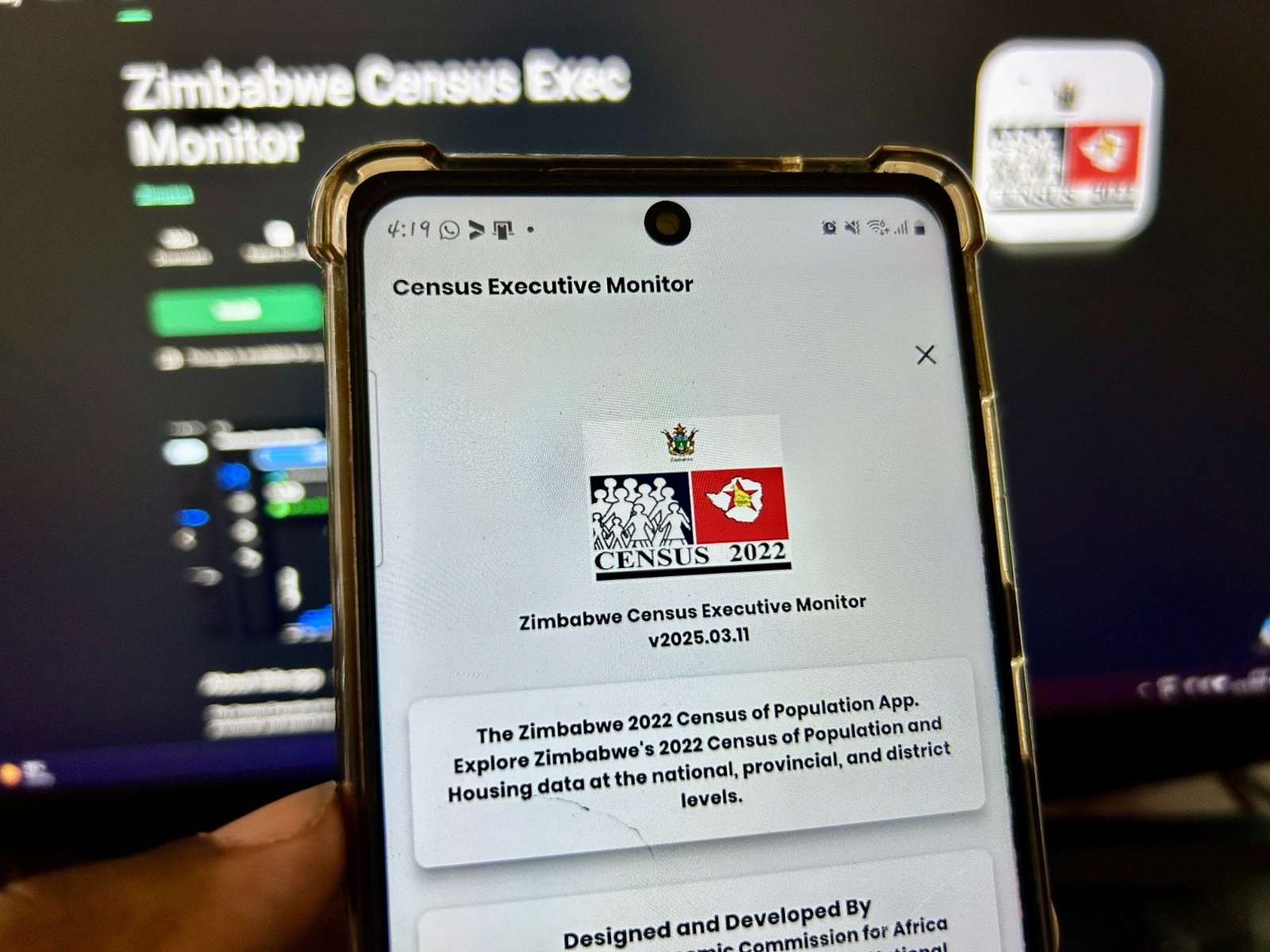Acting President of Zimbabwe, Chiwenga, says the government is working on strengthening the country’s new currency. The ZiG, as it’s called, was introduced earlier this year and started life at ∼1:13 to the USD.
However, since then, the ZiG has depreciated on the black market. The govt insists that the exchange rate has not flinched but the streets say the ZiG has depreciated by almost 100% against the USD.
The govt is aware of this divergence and has been making efforts to address it. We have seen mass arrests of money changers, who have largely been driven off the streets, and retailers’ bank accounts have been frozen for declining the ZiG or using the black market rate.
Despite these efforts, the ZiG has continued to depreciate on the black market, all while remaining somewhat scarce.
It’s important to note that the ZiG has brought a semblance of stability to the economy, despite its depreciation on the black market. Admittedly, the bar was low, given that the ZWL it replaced was a disaster, and any alternative would have been an improvement.
A few weeks ago, we asked Liquid, the largest IAP in the country, whether the ZiG had brought relief, and they responded:
Liquid Intelligent Technologies Zimbabwe believes that the ZIG has brought stability and predictability and curbed the FX losses that we used to face in the country due to the ZWL and arbitrage. We are confident that we can plan and execute our business initiatives positively, as the ZIG has, overall, brought a positive outlook to the economy, our local operations in Zimbabwe, and the Liquid Group in general.
There is no denying that the ZiG has brought some relief. However, with it having already lost half its value, concerns are growing that it may rapidly descend to the depths the ZWL fell to.
Govt working to stop/reverse ZiG slide
Chiwenga stated:
Government will continue to monitor the operations of our financial markets and promote efforts to grow and stabilise our national currency.
That’s all well and good, but it’s easier said than done. If these efforts mainly involve playing Tom and Jerry with money changers and forcing retailers to accept the ZiG at the official, non-market rate, then we have a long road ahead of us.
The acting President also said:
Let me assure you that government is working to promote the wider use of our local currency and is putting in place measures that will eliminate gaps that are creating arbitrage opportunities in the exchange market.
How the govt will promote the wider use of the ZiG is not immediately clear, unless it simply means making the ZiG more available across Zimbabwe—something that has yet to be fully realised.
What kind of measures can eliminate the gaps creating arbitrage opportunities? Chiwenga is correct that arbitrage exists, which means there is an opportunity to exploit the difference between the official and black market exchange rates for profit.
To remove the arbitrage opportunity, the govt would need to bring these rates into alignment. As long as there are different rates, the opportunity for profit through currency trading will remain.
One way to achieve this would be to allow the official rate to be determined by market forces, rather than setting it from an air-conditioned office somewhere in Harare.
We know the chances of the govt taking this route are slim. So, we are left wondering what exactly the measures Chiwenga mentioned will look like.
De-dollarisation
Chiwenga also said:
No nation will develop without sovereign control, defence and growth of its own national currency. Our government introduced the Zimbabwe Gold as our new sovereign currency. It is our responsibility as a nation to embrace and protect the new currency as a bedrock and anchor of our economic development.
While it’s true that having control over one’s currency might make economic development easier, it’s important to remember that of all the countries with their own currencies, more have weak currencies than strong ones.
In any case, the notion that no nation will develop without controlling its own currency is simply not accurate.
Countries without currency control
Many successful economies have developed while using a currency that isn’t fully sovereign or is pegged to another.
For instance, Eurozone nations have experienced development and growth using a shared currency. Some have even suggested that Zimbabwe consider adopting the South African rand. While South Africa has its challenges, the rand could make sense for Zimbabwe.
Similarly, countries like Ecuador and Panama have grown while using the US dollar as their legal tender. These countries undermine the govt’s argument, as they are using the very currency that Zimbabwe claims cannot support growth.
Zimbabwe differs from Panama and Ecuador in that those countries formally adopted the USD as their sole currency—Panama in 1904 and Ecuador in 2000—while Zimbabwe adopted a multicurrency policy, with the USD rising to prominence.
None of these countries has a formal agreement with the US. They simply take advantage of the USD’s status as a global reserve currency.
Yet, Panama has become a major financial and banking hub in Latin America by using the US dollar, offering monetary stability and attracting international businesses and investors.
Using the US dollar has also helped Ecuador reduce inflation and promote stability.
Zimbabwe, however, has not fully committed to dollarisation and has instead engaged in local currency shenanigans, leading to instability.
In short, a sovereign currency is not a prerequisite for economic growth and development.
Trust and confidence
The Zimbabwean govt seems hell-bent on abandoning the USD and other foreign currencies in favour of exclusive use of the ZiG within a few years. However, given their poor track record with currencies, it’s understandable why Zimbabweans are apprehensive.
This is further compounded by the fact that many prerequisites for a successful currency have not been met, meaning the ZiG is rolling uphill. We are talking camel through the eye of a needle levels of odds of success.
Currency value is built on trust, stability, and strong governance. For a new sovereign currency like the ZiG to succeed, the govt needs to demonstrate fiscal discipline, transparency, and the ability to manage inflation.
A successful currency requires widespread acceptance both domestically and internationally. It’s premature to discuss international acceptance when even Zimbabweans remain sceptical of the new currency.
If the govt forces a swift adoption of the ZiG without ensuring it can compete globally, it risks economic isolation. Businesses will find it harder to trade or access forex if they are locked into using a currency that is not widely recognised. This stifles growth rather than promote it.
This has been the Zimbabwean story.
Real growth
If the govt is truly focused on economic growth, it needs to address the real hindrances facing Zimbabwe. Not having a sovereign currency is the least of the country’s problems. Some might even argue that not having a sovereign currency could be an advantage.
Economic development depends on many factors beyond currency control, such as the strength of industries, infrastructure, governance, and human capital. On the latter point, Zimbabwe has lost many of its brightest minds to other countries.
Having control over a currency, without addressing broader economic issues such as corruption and inefficiency, will not automatically lead to development. Zimbabwe needs to improve its economic fundamentals before tackling currency policy.














Comments
34 responses
Learnard you should become an economist in the near future. Well written article
Well said!
🙏🏾🙏🏾
Half an American Dollar is 50 Cents, half aKwacha is 50 Tambala or 50 Ngwee with Malawi and Zambia. In South Africa, half a Rand is 50 cents! For us here in Zimbabwe, what is half a Zig?
If we honestly considered the costs that are incurred, the advertising, meetings in top class venues by the governor, the road show travel accommodation and subsistence of the reserve bank staff, the deployment of police details, the arrest and arraignment of Mon changers, the court and prison cost and the time our very top leadera are on the issue, I am sure that only those costs are more than sufficient to keep the zig depreciating.
half is zig is 50 ziglets hahahaha
Majority’s way of thinking is not always correct.
There should be some other way Zimbabwe can come out of the quagmire besides currency and politics.
Maybe Zimbabweans to start loving what’s their own, like respecting the purpose of queuing.
So from this whole article, you think nationalism is our solution? The obvious inefficiencies we’ve come to expect flew right over your head? Our leaders cannot inspire confidence in anything. And confidence is what props up any piece of paper to represent value.
Very true. Launching a currency costs a lot even without those extra costs to force people to use it. So, we definitely are spending too much to prop up the ZiG, all the while contributing to its decline.
Well said. In addition to production growth, until fuel is freely available in ZIG the USD will remain king. Most businesses and farms are running off diesel due to poor ZESA availability
I remember some economist saying ‘until a normal citizen can just walk into a bank and convert their ZiG/ZWL for USD at the official rate, we are joking.’
Look guys the issues you raised are true but you are missing the point. It’s not about macro-economics. It’s about daylight robbery. Govt has on numerous occasions raided FCAs and foistered local currency on the fx holders at a rate of their (gvt) choice. As a result “Zimbabweans are trumatized ” to quote one John Mangudya. No amount of persuasion is going to make Zimbabweans have any confidence in any local currency; certainly not in the foreseeable future.
I agree HM. I acknowledged that we need trust and confidence for the ZiG to succeed. We have none of that because of the reasons you cited. The fact that the ZiG is depreciating whilst its not readily available on the streets shows just how people don’t trust that will hold on to its value.
All coz of corruption and inefficiency thats all coz zig bho but these two right here hmmm are the pillers of the zig downfall
Taura hako. It’s annoying to see. The ZiG was skillfully constructed, structured currency what what, and yet its doomed to fail because of corruption and inefficiency.
The more they use command economics , the more they lose the trust of the people. You just can’t force a currency on people. Zig will fail or has failed already.
Am sure they’re already thinking of another currency name.
I hate that you might be right there. I would not be shocked if we had a new currency, cleverly structured, by 2030.
(Government)Zig and the public is an insecure relationship with one individual full of control issues and the other with trust issues.
That’s a ticking time bomb.
Yes we do have the finance ministry and rbz, but we lack policies and a framework that is friendly to businesses. On top of that we have elected officials who want to make as much money in 5 years.
I don’t know much about politics, economics or writing an analytical answer but i know this: tirikukama mbada
That’s an excellent way to put it – a govt with control issues and a population with trust issues. Mbada irikukamwa.
@Techzim there is an AI called Rutava by Zim scientist (HIPH) and their associates developed to screen for cure or treatment for diseases. They are taunting ths tool to have discovered cure for skin cancer and Alzheimers. If you can find out for the less tech savvy: 1. Is this cure still a string of code 2. Has the chemical compound been developed yet or turned into treatment 3. How is it that HIPH is confident that they have discovered the cure(not possible cure) if no clinical trials have been conducted.
Thank you. We are looking into it and will be asking those questions and more to get to the bottom of it.
Shame on your analysis. You are anti Zimbabwe. So you just we remain without a currency. The USD is now our enemy
Chico let’s normalise removing emotions from reason. You give no reasons why you disagree. First question, ‘What is the purpose of a currency?’ Whatever it is, you can agree that the ZWL that we recently scrapped was not fit for purpose. We have to note why it failed so that we don’t repeat that mistake because it’s a costly one – both in monetary terms and trust and confidence lost.
So, what’s wrong with not having a currency if you’re not ready to have your own? Do you not see the damage caused by rushing an undercooked currency to a population that’s not ready?
The USD is not our enemy. It’s currently the only thing supporting the economy.
Chico, is your brain functioning ok? you must try some Rutava by Zim scientist pliz…
The saying goes ‘action speaks louder than words’! All the actions taken over the last few years signal the intentions clearly – authorities do not want production or formal businesses. The onerous and expensive burdens on them from IMT, taxes, fiscal, etc etc etc. Zesa cost is ridiculous! There is no REAL funding for productive sectors and no REAL will to takle the informal market…
Exactly, every single policy discourages entrepreneurship and hurts businesses. Yet, the focus is de-dollarisation so that we can worsen the problem by printing hard and funding overpriced and underdelivered infrastructure projects.
We can promote it all we want but if the economic fundamentals are not in place, it will fail. Then we erode the people’s trust even further. So, promoting something that’s doomed to fail will cause more damage. So, the govt needs to listen to the economists when they say Zim is not ready for the ZiG.
Stick to tech blogging. Be like Techradar not Bloomberg.
If that article bothered you then just skip it, you aren’t forced to read them you know . Mr Sengere keep giving us such articles don’t pay heed to folks like that one
You are not into tech. Read Fingaz instead
Because of it’s versatility and worldwide acceptance, the US$ dollar 💵 is the most sought after currency in the world. Very few currencies can compete against it. And no country in the third world can match it. This is why Africa’s 2 largest economies, Nigeria 🇳🇬 and South Africa 🇿🇦, reserve it only for imports and international payments.
When it comes to Zimbabwe 🇿🇼, regardless of how much gold and precious minerals the ZiG/ZWG is backed by. Because of the past performance of the domestic currency, it will be very difficult for people to prefer its use. Furthermore, the many unemployed who are managing to make a living from money changing 💱, really have no other means of income. So it’s more or less impossible for them to abandon this practice.
Money changers will only vacate the streets, once alternative employment has been found for them. And when forex is once more available in the banks for all who require it. As was the case in the 1980s and 1990s, before the dramatic free-fall of the Zimbabwean dollar began.
It’s very possible that government has realised that they will never have a stable currency and they don’t care. If they introduce a new currency and it lasts 5 years then it will have done its job. It’s like somebody who puts a grass thatched roof on his mud hut. That is actually the design. In 5 or 6 years the grass will rot and he will reroof and life goes on. Who says a currency must last forever?
Xauusd/gold is has been bullish for weeks now. If zig was tied to gold value then zig must have appreciated value and trading may at 1:6, this is not the case. So the lies get exposed here. There is no bullion backup. Its just a paper not even trusted by its people.
ZiG racho rimbori kupiko, ma change acho kuma shops hakuna, ndianaani vakaviga ZiG racho